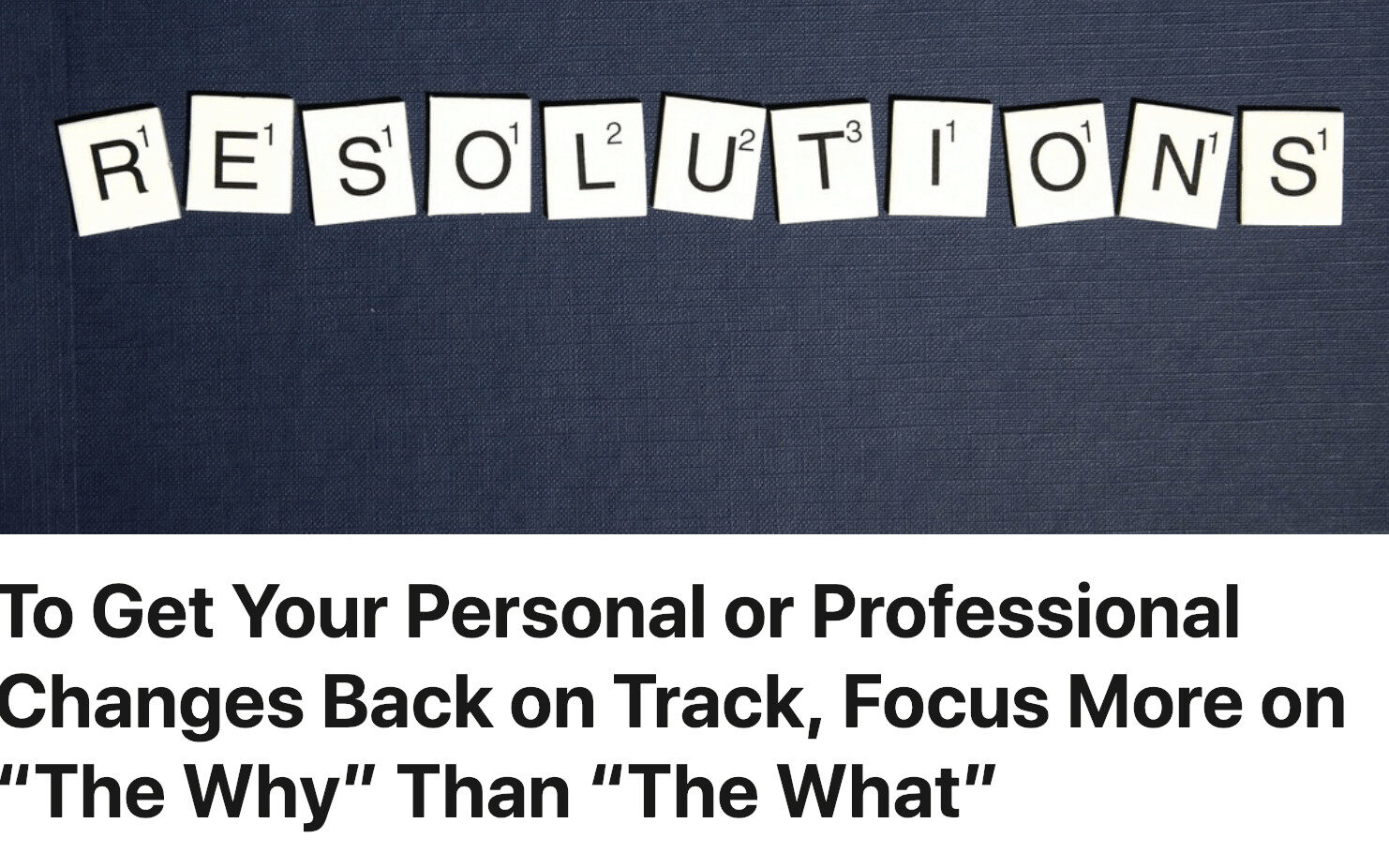I've published my most recent article on LinkedIn (and you can also read it on Medium.com if you don't have LinkedIn access).

The article begins:
“What do you hope to change in 2019? If your New Year's resolutions have already gotten off track, don't feel bad. Various studies estimate that 80 to 90 percent of resolutions fail. We can get our resolutions back on track — we can build motivation and increase our chances for success by continually reminding ourselves why change is important to us. The same is true with professional or organizational goals.”
I share how I've been working to apply “Motivational Interviewing” techniques as a way to self-coach myself when I feel “stuck” or in a state of “ambivalence.”
I'll be talking about this during my keynote talk at the Society for Health Systems conference.
Instead of labeling others as being “resistant to change,” it's perhaps more constructive to think about them being in a “state of ambivalence.” Being ambivalent about change is quite normal and to be expected in most cases, even when change is positive and self-initiated.
So, it's no wonder that organizational change is less likely to succeed when it's an idea that one person is forcing on others.
Instead of blaming or labeling people, the key is to “lean in” to the conversation and to try to help people move themselves forward by talking themselves into change (which is not the same as manipulating others to do what you want).
One core theme of my SHS talk is to shift from:
- Telling people what to do
- Telling people WHY they should change
- ASKING people to articulate why they should change
Have you found yourself “stuck” in change?
I think of a nurse manager I was working with over a year ago. She was having trouble doing some of her daily “leader standard work” activities. She was stuck.
She expressed change talk, like “I need to…” and “I should…” and even “I want to…”
But, her sustain talk included statements like “But it's hard to make time.”
Instead of TELLING her she should do this (an unhelpful act, since that something she already knew), I asked her questions about her motivations. I acknowledged and affirmed that leader standard work seemed important to her.
I asked a simple question of:
“What are your top three reasons for doing your formal gemba walks?”
This question triggered more change talk. She was building and reinforcing her own commitment to change. She was convincing herself to do this. I wasn't convincing her or manipulating her. I think I was helping.
After that discussion, I could see her smile… her body language changed… she seemed more confident. Moments like that, I think, show the power of “Motivational Interviewing.“
What do you think? Please scroll down (or click) to post a comment. Or please share the post with your thoughts on LinkedIn – and follow me or connect with me there.
Did you like this post? Make sure you don't miss a post or podcast — Subscribe to get notified about posts via email daily or weekly.
Check out my latest book, The Mistakes That Make Us: Cultivating a Culture of Learning and Innovation:










I had some additional thoughts while working out this morning. In the past, I would listen to music or podcasts while in the gym. I’ve found that it works better for me to use an app, Aaptiv, that has specially programmed routines for the elliptical machine. These workouts include appropriate music and, better yet, some energetic coaches that you hear.
The coaches will often say things like, “Try to remember why you got into the gym today” or other things that make you think about your personal “why?”
I find that their comments prompt “change talk” in my head. This strengthens my commitment to finishing the workout and coming back again. The trainers can’t “motivate me,” but they can help me discover and strengthen my own motivation. I mean, I have at least *some* motivation or I wouldn’t have downloaded the app and I wouldn’t be on the elliptical.
I notice the trainers don’t talk about barriers. Doing so would trigger “sustain talk,” such as “I find it hard to work out when I travel.”
Examples of change talk would include: I need to work out, I want to exercise more, I’m going to start working out five days a week, I’m going to work out more while on the road because that’s important to maintaining weight loss and fitness. Change talk might get into reasons like “I am going to exercise harder because I want to avoid Type 2 diabetes” or “I need to work out more so my suit pants fit properly.” We have our own motivations that are unique to us and our situation.
The more change talk outweighs the sustain talk, the more likely we are to move forward with change.
I think focusing on the why is the best thing you can do. It makes you dig deeper into the changes that you are thinking about. By making people or yourself focus on the change, it motivates them more when they think of what could come from change. It allows you to experience what the change will be like for a moment and make you want to continue with whatever change you want to make. You almost get a look into the future and your motivations all of the sudden become 10 times stronger because you develop a passion towards what you want to do.